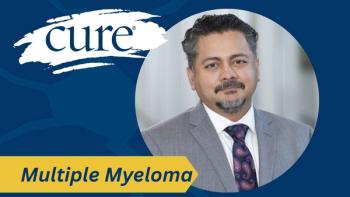
Clinical Trials Are Pivotal in the Evolution of CAR-T Cell Therapy in Multiple Myeloma
While the use of CAR-T cell therapy is currently still being investigated in patients with multiple myeloma, Dr. Nina Shah of the UCSF Helen Diller Family Comprehensive Cancer Center believes that these clinical trials will be what ultimately moves the field forward.
While the use of CAR-T cell therapy is currently still being investigated in patients with multiple myeloma, Dr. Nina Shah believes that these clinical trials will be what ultimately moves the field forward.
In an interview with CURE®’s sister publication, OncLive®, Shah, an associate professor of medicine at the University of California, San Francisco (UCSF) Helen Diller Family Comprehensive Cancer Center, discussed how heavily pretreated, relapsed or refractory patients currently involved in CAR-T trials are helping to pave the way for future breakthroughs, and noted that clinical trial enrollment should always be considered an option for patients.
Transcription:
So far, CAR-T cell therapy for myeloma is still investigational, because we're waiting for FDA approval for the first product. So, because of that, and the way that clinical trials have been run, it's mainly been for relapsed and refractory patients. And when I mean relapsed and refractory … I mean, very relapsed and refractory – median lines of treatment for these trials have been like six or seven lines – which might not be how we're going to eventually use it because the inclusion criteria had to have at least three lines and be progressing. But a lot of these patients were way beyond that, just because it's a clinical trial.
We're really excited about the new molecules and cellular therapies and immunotherapies that are coming to the myeloma space. I think each is going to build on the other one. And we may ultimately have combinations and move these more forward.
I am so thankful to all of the myeloma and oncology practitioners who have sent their patients to clinical trials all over the world, because we just could not do it without them. And we wouldn't know any of this without the patient and physician participation and partnerships, so, if anything, I just really hope that I can offer clinical trials to anybody who's watching this so that patients can reap the benefits as well.




